Key Takeaways
- Mosquito attraction is influenced by carbon dioxide, body heat, odor, blood type, pregnancy, clothing colors, alcohol consumption, physical activity, and humidity.
- Common myths like “sweet blood” are not scientifically supported.
- Effective prevention includes using EPA-approved repellents, wearing protective clothing, managing environmental conditions, and seeking professional mosquito control services when necessary.
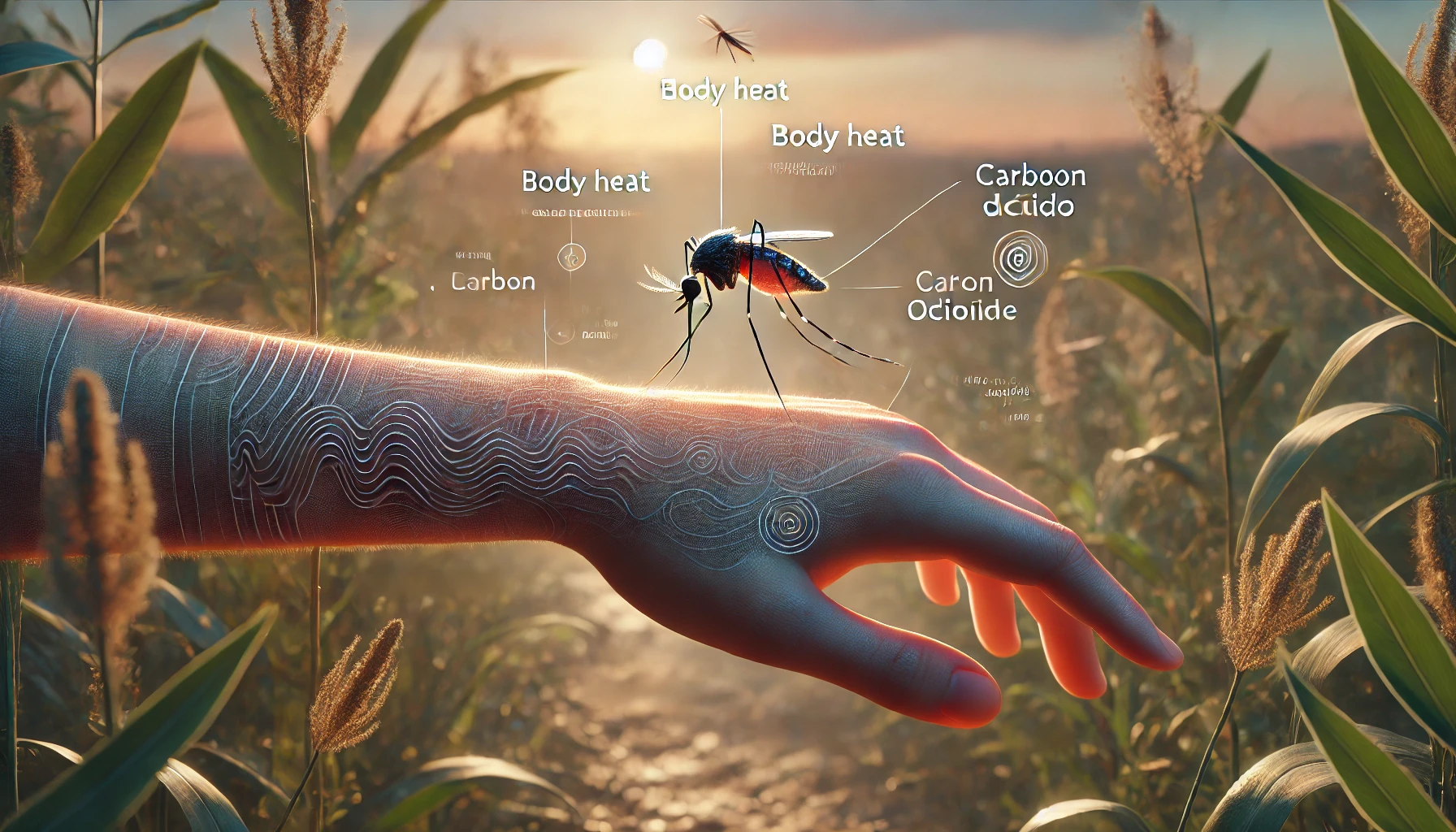 Have you ever sat around a backyard fire pit or enjoyed an evening barbecue, only to find yourself constantly swatting away mosquitoes while your friends seem completely fine? You know what? You’re not imagining things—some people are “mosquito magnets.” But why exactly is that? Here’s the fascinating science behind mosquitoes’ selective preferences and what you can do about it.
Have you ever sat around a backyard fire pit or enjoyed an evening barbecue, only to find yourself constantly swatting away mosquitoes while your friends seem completely fine? You know what? You’re not imagining things—some people are “mosquito magnets.” But why exactly is that? Here’s the fascinating science behind mosquitoes’ selective preferences and what you can do about it.
Mosquitoes Do Have Favorites
It might sound strange, but mosquitoes are surprisingly picky eaters. Around 20% of people attract way more mosquito bites than others. But why is this happening to you specifically? Let’s look closer at the biology and environment mosquitoes find irresistible.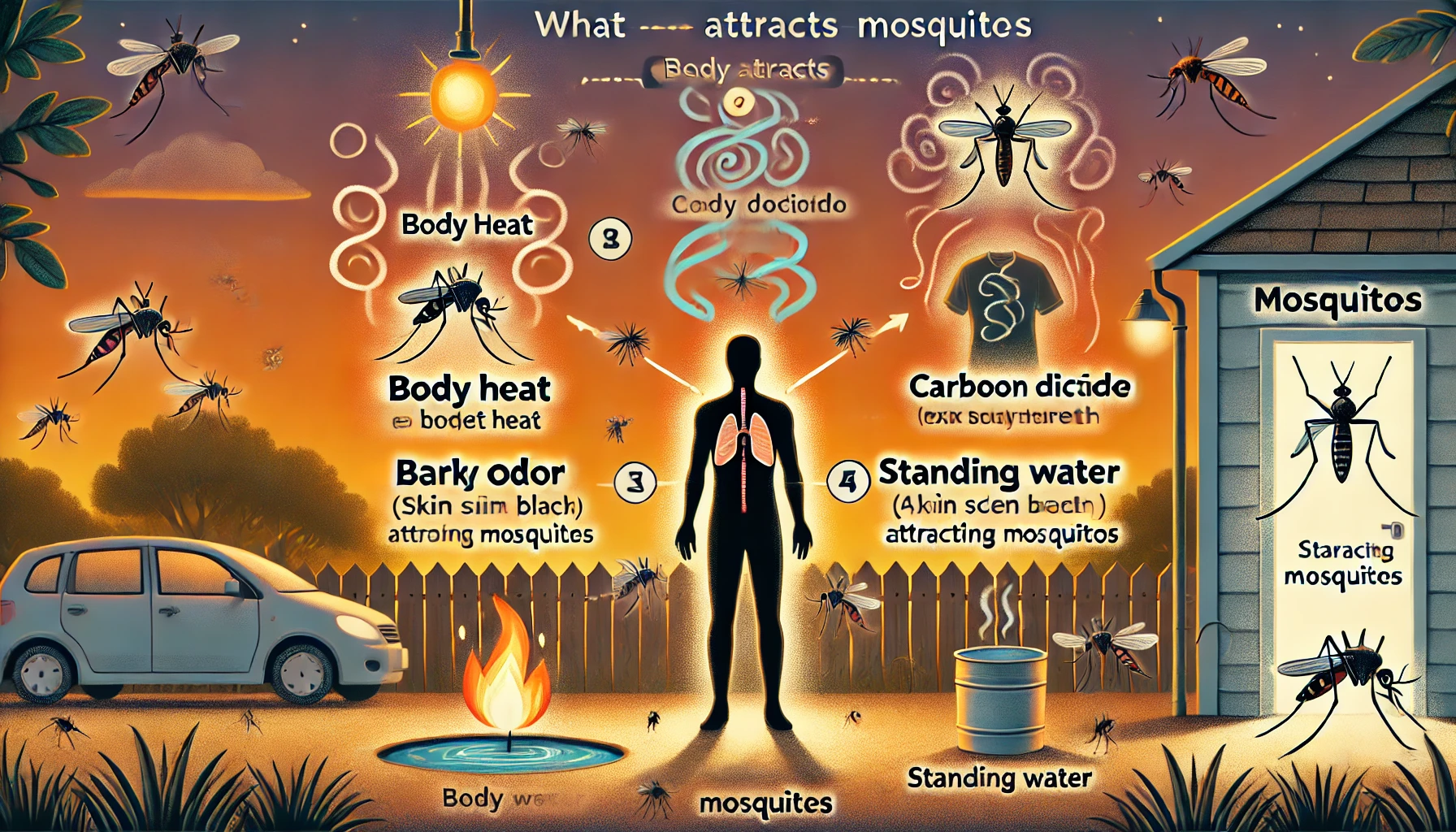

Not getting a solution?
Get your free pest control estimate today!So, Why Exactly Are Mosquitoes Drawn to You?
1. You’re Breathing Out Too Much Carbon Dioxide Mosquitoes have a superpower—they can detect carbon dioxide from far away. More prominent people, athletes, or anyone just finishing working out produces more CO₂. Pregnant women and adults, in general, exhale more carbon dioxide, making them prime mosquito targets. Have you ever noticed mosquitoes swarming around your face? That’s following your breath. 2. You’re Giving Off a Lot of Heat Mosquitoes are tiny heat-seeking missiles. If you naturally run warmer or have been active, your increased body temperature makes you a flashing neon sign for mosquitoes. Especially on those warm summer evenings, they’ll spot you easily and zoom straight in. Imagine yourself glowing brighter to them every time you sweat—kind of annoying, right? 3. Your Body Has That “Special” Odor Do you know how everyone has their own unique scent? Well, mosquitoes do, too, and they’re experts at sniffing out particular odors. Your skin’s bacterial makeup plays a massive role here. Certain bacteria produce chemicals like lactic acid, ammonia, and carboxylic acids—mosquito magnets. You will be their favourite meal if your microbiome creates more of these chemicals. Honestly, it’s a bit unfair how your natural scent could betray you like this. 4. Mosquitoes Are Blood Type Snobs Believe it or not, mosquitoes have favorite blood types. Studies consistently show that folks with Type O blood attract almost twice as many mosquitoes as those with Type A or B blood. Mosquitoes literally sniff out blood type through chemicals on your skin. Crazy, right? So, if you have Type O, mosquitoes might see you as the tastiest snack on the block.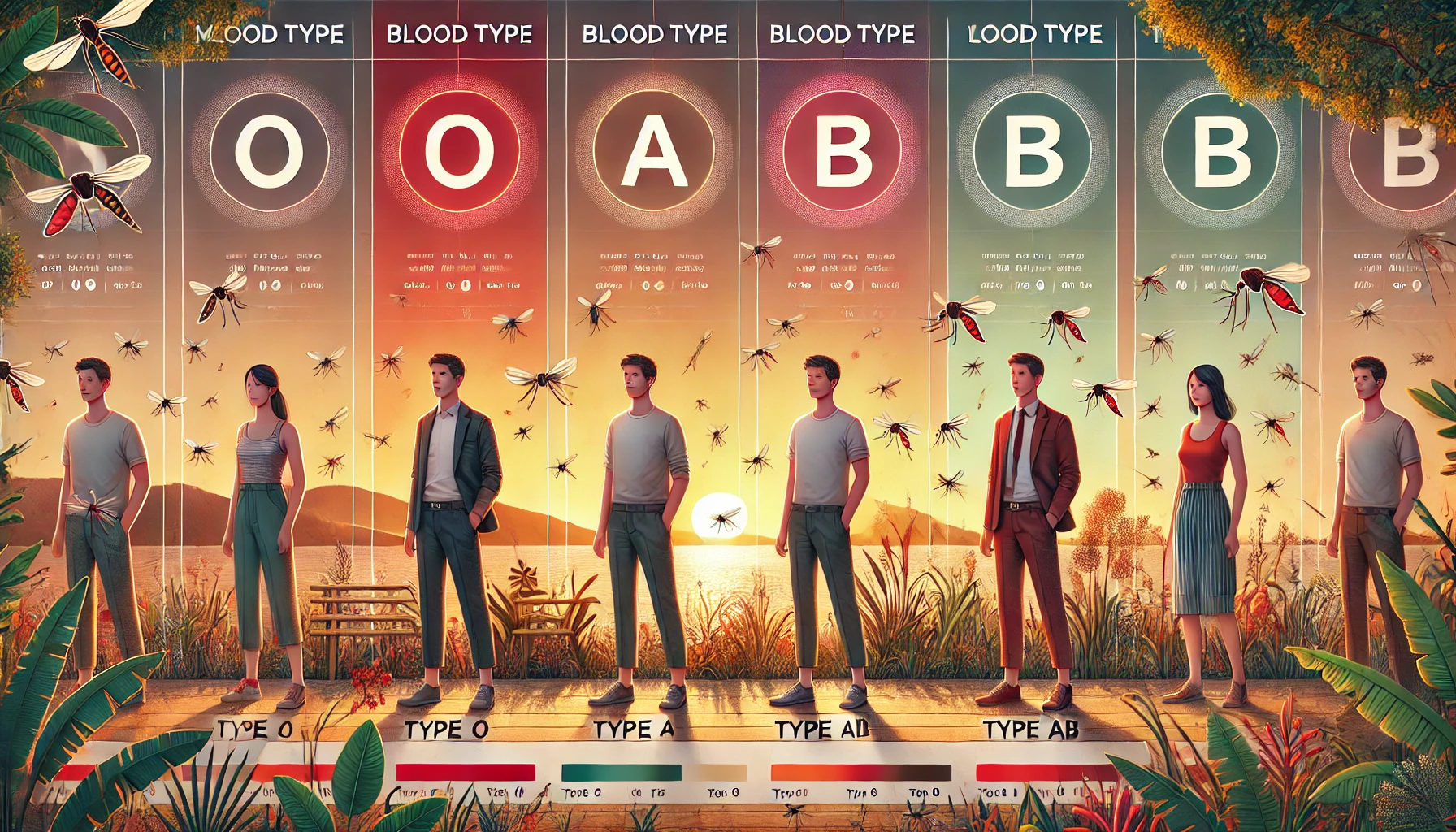 5. Pregnancy Makes You a Mosquito Magnet
Pregnant women often experience more bites due to several biological changes—higher body temperature, more carbon dioxide exhalation, and hormonal shifts altering body odor. It’s almost as if pregnancy sets off a mosquito radar, making expectant moms especially vulnerable. Pregnancy already has enough challenges, and mosquito bites shouldn’t have to be one of them.
6. It’s Your Outfit—Seriously!
Mosquitoes are visual hunters, too, especially during twilight hours. Dark clothing like black, navy, or red catches their attention. Think of it like waving a dark flag in front of a bull—it grabs their attention instantly. Wearing lighter shades like pastels or white can really help. Who knew fashion choices could affect your mosquito bite count?
7. Alcohol Makes You Even Tastier (Sorry!)
Enjoying a cold beer or a glass of wine outdoors? Unfortunately, alcohol raises body temperature and changes skin chemistry, giving mosquitoes the green light. Beer drinkers, specifically, seem to get the worst of it—mosquitoes just love that ethanol. Maybe it’s time to rethink your favorite barbecue beverage?
5. Pregnancy Makes You a Mosquito Magnet
Pregnant women often experience more bites due to several biological changes—higher body temperature, more carbon dioxide exhalation, and hormonal shifts altering body odor. It’s almost as if pregnancy sets off a mosquito radar, making expectant moms especially vulnerable. Pregnancy already has enough challenges, and mosquito bites shouldn’t have to be one of them.
6. It’s Your Outfit—Seriously!
Mosquitoes are visual hunters, too, especially during twilight hours. Dark clothing like black, navy, or red catches their attention. Think of it like waving a dark flag in front of a bull—it grabs their attention instantly. Wearing lighter shades like pastels or white can really help. Who knew fashion choices could affect your mosquito bite count?
7. Alcohol Makes You Even Tastier (Sorry!)
Enjoying a cold beer or a glass of wine outdoors? Unfortunately, alcohol raises body temperature and changes skin chemistry, giving mosquitoes the green light. Beer drinkers, specifically, seem to get the worst of it—mosquitoes just love that ethanol. Maybe it’s time to rethink your favorite barbecue beverage?
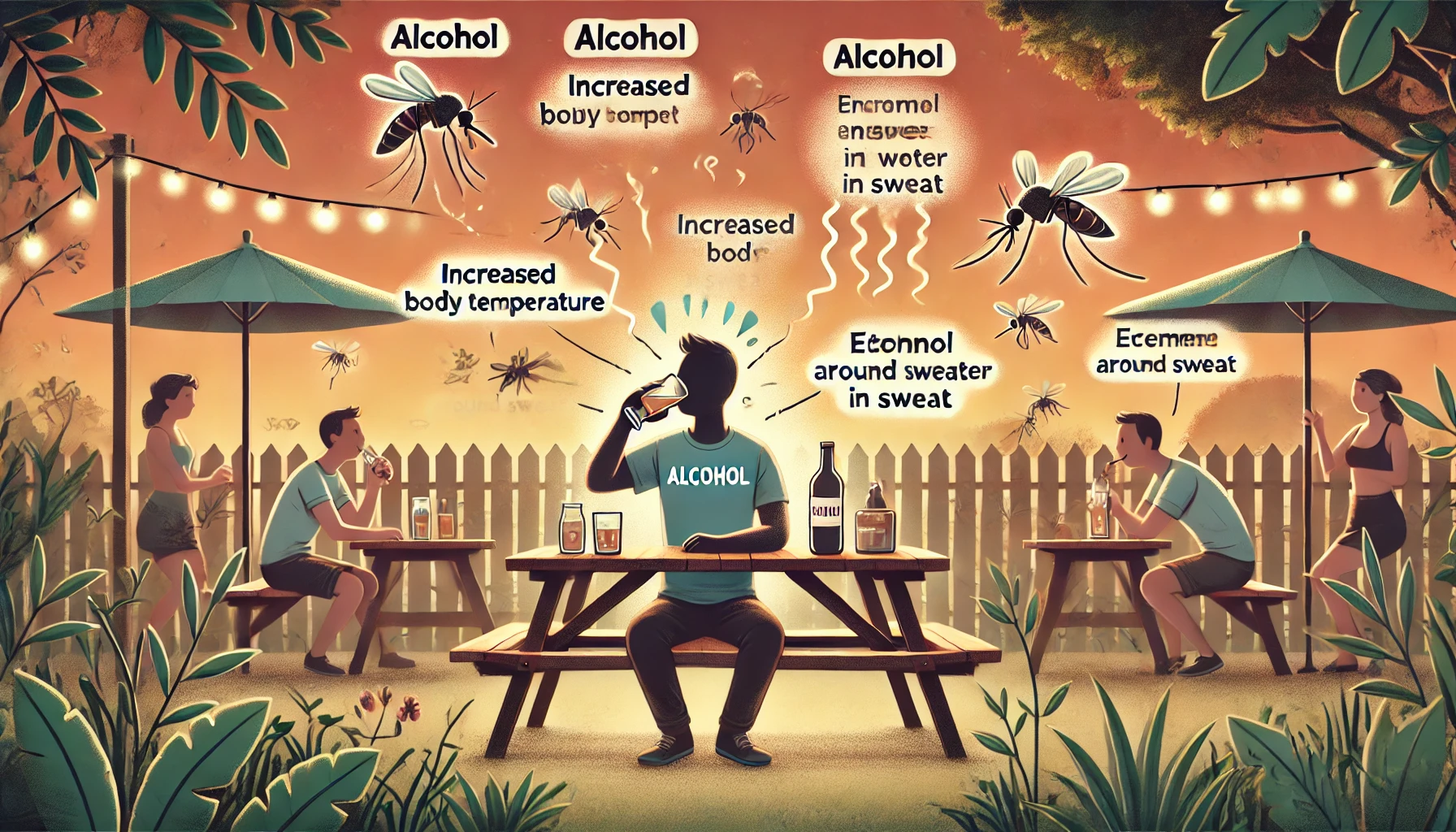 8. Physical Activity is Like a Mosquito Dinner Bell
When you’re exercising, you become a mosquito hotspot. You breathe out more CO₂, generate more heat, and sweat more. That sweat contains chemicals like lactic acid, a mosquito favorite. Next time you jog at dusk, don’t be surprised if mosquitoes join in the run. It’s not exactly the workout buddy you hoped for, is it ?
9. Humidity and Environment
The humidity and environment around you matter a lot. Mosquitoes love humid, damp conditions—think swampy areas, ponds, or birdbath in your yard. Moisture-rich environments are breeding grounds, literally. The more humid your environment, the higher your chance of being bitten.
8. Physical Activity is Like a Mosquito Dinner Bell
When you’re exercising, you become a mosquito hotspot. You breathe out more CO₂, generate more heat, and sweat more. That sweat contains chemicals like lactic acid, a mosquito favorite. Next time you jog at dusk, don’t be surprised if mosquitoes join in the run. It’s not exactly the workout buddy you hoped for, is it ?
9. Humidity and Environment
The humidity and environment around you matter a lot. Mosquitoes love humid, damp conditions—think swampy areas, ponds, or birdbath in your yard. Moisture-rich environments are breeding grounds, literally. The more humid your environment, the higher your chance of being bitten.
Wait, What About “Sweet Blood?”
There’s a common myth that mosquitoes prefer “sweet blood,” but honestly, it’s just an old wives’ tale. Mosquitoes bite humans because they need protein from our blood to reproduce. They get sugar from plants, not us. So, mosquitoes aren’t choosing you for dessert, no matter how much cake you eat. But, let’s be honest—it’s still annoying to be a frequent snack.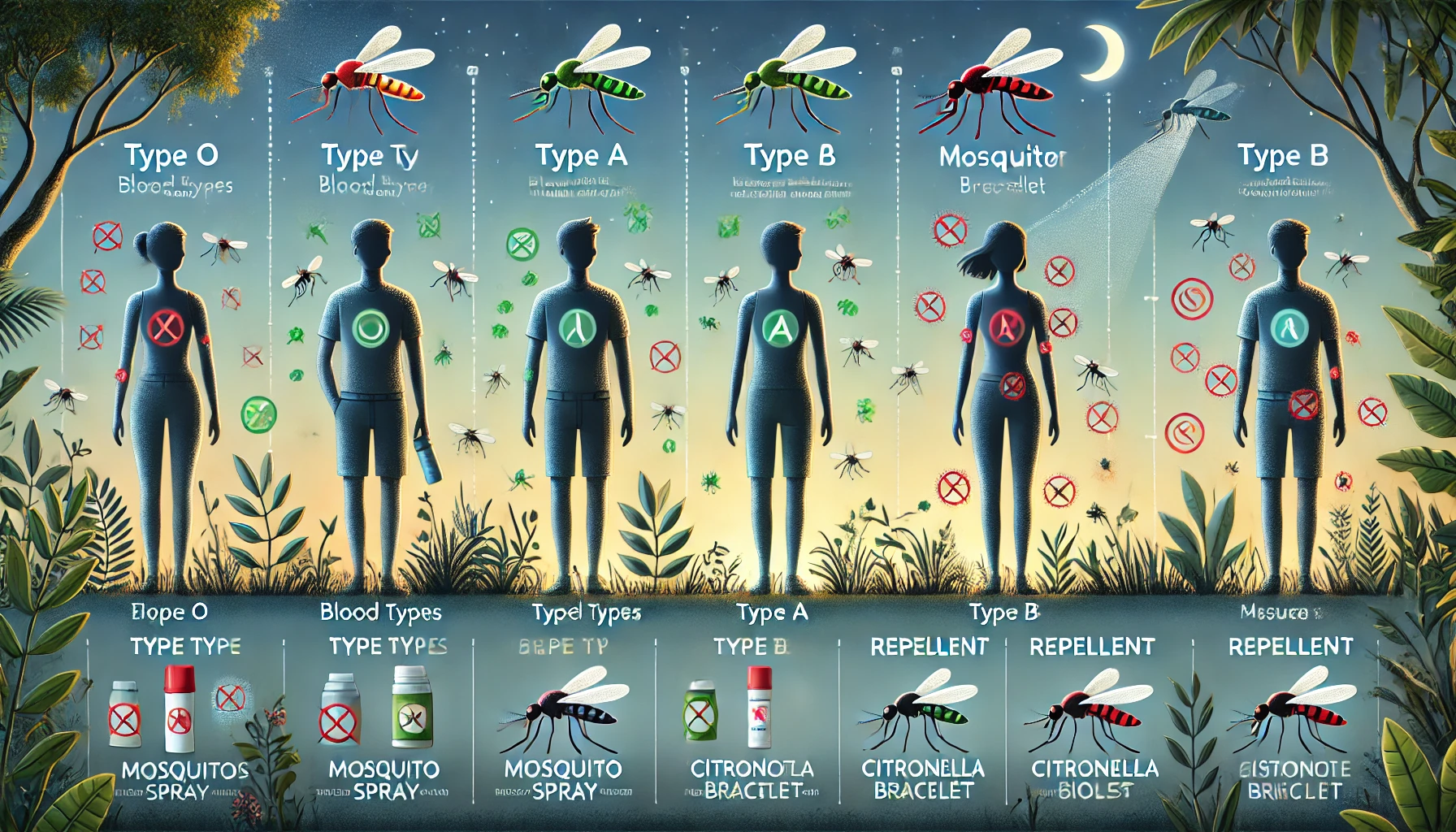
Okay, How Do You Stop Them From Biting You?
- While changing your blood type or natural body chemistry isn’t an option, thankfully there are practical steps you can take:
-
Stick to EPA-Approved Repellents: DEET, picaridin, or oil of lemon eucalyptus are your best friends outdoors.
-
Pick Clothes That Protect: Long sleeves, long pants, and lighter colors can drastically reduce bites.
-
Stay Cool and Calm: Mosquitoes love warmth and carbon dioxide—avoid intense activity during their peak hours, typically dawn and dusk.
-
Skip Strong Fragrances: Floral perfumes or fruity deodorants might smell great to you, but they attract mosquitoes.
-
Get Rid of Standing Water: Even a tiny amount can be a mosquito nursery. Regularly empty buckets, flower pots, or gutters to disrupt their breeding cycle.
-
Use a Fan Outdoors: Mosquitoes are notoriously weak fliers. Even a gentle breeze from a fan can keep them at bay.
-
Bring in the Pros: Professional pest control treatments can dramatically reduce mosquito populations if mosquitoes are ruining your summer.
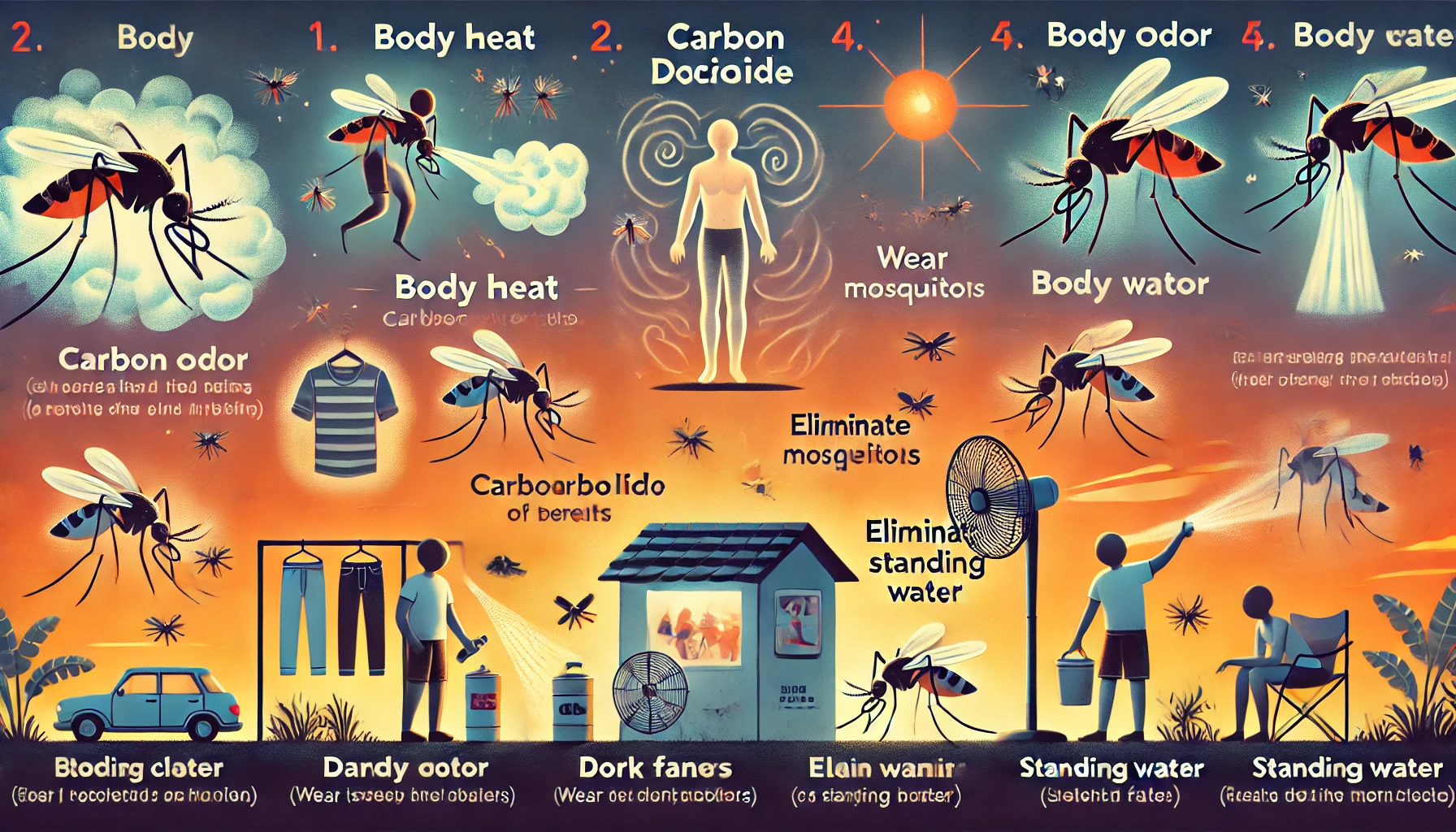 It’s not about being unlucky or having “sweet blood”; it’s about biology and habits. But armed with a bit of science and these tips, your next barbecue doesn’t have to turn into a mosquito buffet.
If you feel things have gone out of control, it is advised to contact pest control professionals. Our team can provide a customized approach to protect your home effectively.
It’s not about being unlucky or having “sweet blood”; it’s about biology and habits. But armed with a bit of science and these tips, your next barbecue doesn’t have to turn into a mosquito buffet.
If you feel things have gone out of control, it is advised to contact pest control professionals. Our team can provide a customized approach to protect your home effectively.
You should visit our Mosquito Control, and DIY Guide pages for additional resources on mosquitos and ways to tackle a mosquito infestation.





